Week 4 - Size Doesn’t Matter – It’s The Result That Counts  So, you’ve tried finding an agent and not been successful and you’ve submitted your book to medium sized publishers with similar results. Congratulations, you are now an “Indie author”. This is a club that is growing in size and probably has a global membership of over a million right now. You even have your own hashtag on Twitter: #indieauthor. With the arrival of the internet, whole new industries opened up that had never existed before. Amazon may be ubiquitous today, but it is sometimes easy to forget they didn’t even exist until 1994, just 25 years ago. "Congratulations, you are now an “Indie author”." One of the things the internet brought was platforms that allowed authors to self-publish their books. Lulu was one of the first, established in 2002. It was a game changer for authors who couldn’t find a publisher. It also produced an exponential growth in the number of people describing themselves as authors, to the millions there are around the world today. Unfortunately, self-publishing is still sneered at by many and shunned by more than a few readers. The way some readers see it, a self-published book, for some reason, can’t possibly be good. This is no more true than saying that a bookshelf built in someone’s garden shed is going to collapse. Yes, it might, but at least try placing your book on it before you make that judgement. You are not Sheldon Cooper – you can embrace change.  Self-published author and millionaire Amanda Hocking Self-published author and millionaire Amanda Hocking Have you heard of Amanda Hocking? No? Well maybe you should be more adventurous in your reading. In 2010 she was un unknown and penniless author from Austen, Minnesota, USA, frustrated at not being able to find a publisher. She wanted to raise $300 so she could go to Chicago to see a Muppets exhibition (she is a big fan). So, she self-published her book. After a few weeks she had sold 150,000 copies, making $20,000. Several books later and she is now a millionaire. Not a single publishing house nor a single agent was involved. She did it her way. There are many well-known authors signed to big name publishing houses who don’t make that sort of money. OK, not every author can be an Amanda Hocking - but they can all dream. There are plenty of authors who make a respectable living by self-publishing. There are also thousands who will never make a penny out of it, but there are reasons for that and we’ll take a look at some of those later in this series of blogs.  One thing some authors discovered was that if they could publish their own books, they could also publish books for other authors. This has led to the growth in small publishing houses and not all of them offer good value for money. I’ll get onto that in a moment as well. But, for the moment, I’ll tell you that I’m going to talk about self-publishing and using small publishers as though they are the same thing because, for most purposes, they are. So, if they are the same, why should you use a small publisher? Here we get to the crux of the matter. A publisher (please excuse me for dropping the “small” prefix) will do things for you that you don’t know how to do, you don’t want to do, you don’t have the time to do or they can do it better than you. The last time we redecorated our house we could have done it ourselves and saved a lot of money. Why didn’t we? Because our local painter and decorator could do a better job, made a lot less mess and we could carry on doing the things we really wanted to do, which wasn’t painting and decorating. Small publishers are the painters and decorators of the self-publishing world.
2. Providing an editing service, 3. Proofreading your work, 4. Formatting your work into an actual publishable book, 5. Uploading your book to the relevant retail platform(s) and 6. Marketing your book. I’ll be talking more about each of these in a moment.  If the publisher has done those things, they have earned their share of your book’s royalties. If they didn’t, why are you using them? All of those things the author can do for themselves. They aren’t all easy and some of them are very time consuming and/or tedious. Which is why some authors may prefer to get someone else to do them. There are many “publishers” out there that will ask you for money up front to do those things for you. Don’t pay them. Why not? Because once they have your money, they have no need to do anything else; in particular, bullet number 6. Marketing the book is the hardest and most time-consuming part of the process, but it is the point at which the author earns their income. "Because once they have your money, they have no need to do anything else" If you pay a “publisher” £500 to do the first 5 things on that list, then there is no need for them to do the 6th and hardest. They have fulfilled their remit by getting your book onto Amazon, Lulu or Kobo. They have no need to spend hours, days and weeks of additional effort to market your book. But if the publisher has done those first five things without you paying them, they will want some sort of return and they will only get that when your book sells. Proper publishers are hungry and they need to eat, so they will work hard to market your book so they can earn money. Pay up front if you want – but don’t expect your book to become a best-seller.  If you want to self-publish, then your starting point isn’t to upload your book onto KDP (or Lulu or Smashwords or Kobo etc). Your starting point is to learn how to do the 6 things in that list of bullet points above. In Week 1 of this blog we talked about beta readers and they are your source of informed opinion on your book (informed because they are your audience). If you haven’t yet established your network of beta readers, then now is the time. Why is this a vital step? 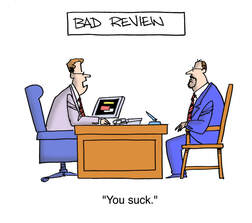 Well, people may buy your first book, but if it is the proverbial dog excrement, they will not come back for a second serving. Then there are the reviews. Not just on Amazon, but on Goodreads, Reddit and a whole host of other websites. Trying to market a book that is getting a lot of bad reviews is like trying to market a bicycle with square wheels. All authors get a few negative reviews, but if all you get are negative reviews you won’t sell any more books. And don’t try to fool people by getting friends and family to post good reviews for you. Amazon is wise to that and so are their customers. The reviews that carry the most weight are the ones posted by people who write a lot of reviews and that probably isn’t your Mum or your mate down the pub (assuming pubs ever re-open) But your beta readers have told you your book is great, so you don’t have to worry about that too much. "The reviews that carry the most weight are the ones posted by people who write a lot of reviews"  Editing is about taking a good book and making it better. It may be that a paragraph needs to be shorter, sharper, punchier. It may be that the descriptions are a bit flat and need jazzing up. The pace of the narrative may be too slow, or too frantic, or the plot is too confusing. It may be that a character is too shallow or unbelievable. An editor looks at all those things and more and offers advice on how to make them better. But they won’t re-write the book for you. There are plenty of people offering paid editing services online. It is up to you whether or not you engage with them. But if you do, make sure you understand exactly what to expect from them. You can expect to pay at least £20 an hour for editing, perhaps £200 for one read of your book – and that’s the cheap end of the scale. Second readings are usually cheaper, perhaps half the cost of the first. There are on-line courses you can do to learn how to edit your work and some of them can be accessed for free, or quite cheaply. Learn how to edit and you can enhance your book no end. You still need good characters and a good plot, but you already know how to create those, don’t you? If you don’t, then again, some investment in learning will pay dividends in the long term. But you already knew that. You may think you are a good writer already and maybe you are, but everyone can improve with a little bit of help. If you don’t think you have anything to learn, why are you reading this blog? I would recommend this course from Future Learn in conjunction with The Open University – and its free. You can also sign up no matter where you are in the world.
It is something that is much easier to do than editing, but it never hurts to get a fresh pair of eyes to take a look at your work. I have spotted typos and mistakes in books published by the biggest names in the busines – so no one is immune from missing things, no matter how many times they read them. You can find proof-readers who are quite cheap, offering their services on Fiverr.com. 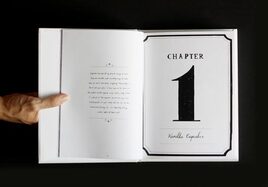 Formatting and uploading books is a matter of trial and error, but it is something that needs to be considered. I have bought books that have really not presented themselves very well because of poor formatting. A reader may only have paid 99p for your book, but they still want it to look like it cost £12.99. There is a whole blog that could be written about formatting and maybe we’ll write it one day, but the start point is to look at the books in your house and on your Kindle or other e-reader. What makes their layout pleasing – or what annoys you about them? If you do nothing else, take a look at what other publishers have done and copy it.  Fonts are especially important. There are fonts that are easy to read on the printed page; there are fonts that are easy to read on an e-reader; there are fonts that work on both and fonts that work on neither. Don’t spoil your book by using a font that looks pretty or quirky or different but doesn’t work on the media you have chosen for publishing. And do remember that a layout that works fine on an e-reader will probably need revising for a paperback. KDP can cause hours of frustration because of that. Uploading a book onto your chosen platform can take hours the first time you do it. But when you’ve finally beaten it into submission, the next time is a lot easier. There are help guides and often videos on most self-publishing platforms, but who wants to waste time reading/watching those? Actually, you do. Don’t work blind, use whatever help is available. One of our authors, Robert Cubitt, wrote a guide on how to use KDP, for some authors of his acquaitance and he has given us permission to let you use it. You can download it below. However, we accept no liability for it.  You will notice that I haven’t mentioned book covers and their design. That is a subject for a separate blog as it comes under the heading of “marketing”. Which brings us to that very subject. Have you got a few weeks to spare? No, didn’t think so. We’ll do our best to break this complex subject down into bite sized, easily digestible chunks. It is probably the most important part of this series of blogs, because this is where you will actually get the financial return for all those weeks, months or even years you have expended writing your book and getting it to the stage where you actually need to market it. "It is probably the most important part of this series of blogs" Over the next few weeks this blog is going to cover social media marketing mainly, which is the cheapest form of marketing you can do. We will also tell you why paying money to people to Tweet your books is money wasted. But that is part of the story, so we won’t spoil it for you. We’ll also take a look at the 6Ps of marketing and how they relate to social media. Feel free to Google that before we meet again. If you have enjoyed this blog and found it informative and you want to make sure you don't miss an edition, just sign up to our mailing list by clicking the button.
0 Comments
Week 3 - Size Isn’t Everything  Last week we looked at trying to find yourself an agent. Of course, we hope you succeed in your search, but you may not. There may come a time when you have exhausted your list of agents compiled from “The Artists’ ℇ Writers’ Yearbook”, but that doesn’t mean you are at the end of the line. Oh no – you have hardly even left the station.
I said in last week’s blog that each submission was a one-shot deal – but that applies only to that book. Many authors find an agent with their second, third or even fourth effort. So – keep the faith, keep writing and keep querying. Secondly, you aren’t at the end of the line in terms of traditional publishing quite yet.There are medium sized publishing houses, outside of that elite clique of international names, who will accept submissions direct from authors. Search the internet to identify them and then do exactly what you did with querying an agent, because it is an almost identical process.  First of all, you will have to establish if they are a bona fide medium sized publisher. That is simple enough. Their website will list their authors. You may not recognise some of their names, but that is probably because we are more familiar with the best-sellers list (the top 1% of authors) than we are with the mass of authors who make up the majority of the publishing market. You should also be able to find their books on the websites of the book retailers, both the ones that are on the High Street and the ones that operate online. If the publisher has only a handful of authors or titles, they aren’t medium sized, they are small (but perfectly formed, like us). 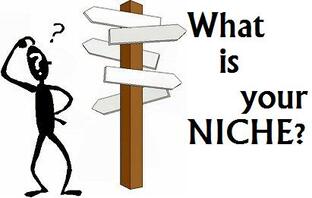 Many of the medium sized publishers concentrate on particular market sectors: romance, sci-fi, war and military etc. So, the next thing you need to establish is which publishers are going to be right for you. You are wasting everyone’s time if you submit to a publisher that doesn’t publish your genre and you are just leaving yourself open to the disappointment of receiving yet another rejection letter. There is no substitute for research. Like agents, publishers are inundated with submissions. For this reason, they often close for submissions for a few months at a time. Don’t upset the publisher by sending in your query when they say they are closed. They won’t read it. "Like agents, publishers are inundated with submissions." But also don’t be put off by the “closed” sign. Keep going back to the website to see if they have re-opened. If they have put out a date when they expect to re-open, make sure you visit that day and every day until the “open” sign goes up again. Persistence pays off. But, just like agents, medium sized publishers only take on a handful of new authors each year, so you are still fishing in a very small pond alongside tens of thousands of other anglers, so you may still be unsuccessful. 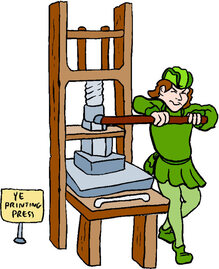 Now, back in Week 1 of this blog we made it clear that you should never part with money up front for publishing your book. We stand by that, but we also said there are times when you may need to pay for certain services. We are now going to look at one of those services. It actually falls under the heading of “self-publishing”, but it is of a particular type. For a fee, there are companies that will take your book and will print you a set number of copies for an agreed price. For some people this is a service worth paying for. It is essential, at this point, for us to be very clear about what these businesses offer. They will print your book for you, but they won’t sell it. Selling it is very much up to the author.
your book has, the trim size (the physical dimensions), the number of illustrations, the quality you want and other factors. The printers who offer this service usually have a menu of pricing options and provide a pretty good quality product – they wouldn’t stay in business if they didn’t. The problem usually comes from the minimum order quantity. Typically, this is around 500 copies, as it isn’t worth the printer setting up the presses for anything less.  I don’t know if you have ever taken delivery of 500 books in one go, but they are heavy (you’ll pay for that in the delivery charges) and they take up a lot of space. At 20 books to a box (about as much as one person can lift without risking injury), you are going to end up with 25 boxes minimum. Then you have to try to find outlets to sell the books, which means trekking around all the independent bookshops in the area (and probably further afield), trying to persuade them to stock a few copies on a “sale or return” basis. There are some specialist outlets you can also try, such as garden centres for gardening books, craft shops for crafting books etc but it still needs you to wander from each to the next with an armful of books and a hopeful smile.  Let’s have a look at the economics of this. If you have had 500 books printed at a cost £5,000, that means each book has to sell for a minimum of £10 just to break even. Then add about 50p to cover the delivery costs. The bookshop (or other outlet) wants to make a profit, so we’ll call that another £1 (they will probably want more, but we’re optimists) and you also want to see some income, say another £2. So, your book has to sell for a minimum of £13.50 per copy. But you are an unknown author. Are people going to be willing to pay that much? We will be discussing pricing in greater detail in a later blog. At the other end of the cost range, the book will have to sell at £6.50 plus for everyone to make something from it, but even that is a lot to pay for a book by an unknown author. But at that price you do stand a better chance of success and you have a bit more room to negotiate with stockists over their cut. The most likely outcome is that you are going to end up with a shed, garage, attic or even all three, full of unsold books. You’ll attend book fares and author events, of course, you’ll give away a few copies to friends and family for free and maybe donate a few copies to local libraries, but that still leaves a lot of books unsold. I know the most likely destination for them. "you do stand a better chance of success and you have a bit more room to negotiate with stockists over their cut."  There is a solution that allows you to sell to a wider audience and that is Amazon Marketplace. If you set yourself up with an account on that you can sell your book through their website, which thousands of people do for a wide range of products, not just books. Amazon will want a cut, of course and you’ll have to charge post and packaging, which adds to the cost of your book for the reader. But it does put your book in front of a much wider audience and you don’t have to trek around the bookshops and the garden centres to do it.  But no one is going to stumble on your book by accident, even on Amazon. You are going to have to do some marketing and we’ll be covering that in future blogs, because it’s such a huge subject in its own right. If you have a storage problem, there are three ways of dealing with it. The printer may agree to store your books for you, but they will charge you for the service. When you get an order, the printer will package and post your book for you. Not all printers offer this service. Amazon will agree to store the books for you in their warehouse and they will also distribute them for you. But, of course, Amazon will charge you for that as well. And if your book doesn’t sell, after a while Amazon will ask you to take your unsold copies back (or dispose of them in another way), to free-up space for more profitable products. Finally, there are “fulfilment” services. These are companies that hold stocks of products for a wide range of small online retailers (again, not just authors) and distribute the products on their behalf. But beware – not all of them have glitzy warehouses. Some operate out of their garden sheds or garages – just like you.  A modern POD facility. A modern POD facility. The 21st century innovation of “Print on demand” (POD) has changed the dynamics of this industry for the better. Your book is held as a computer file by the printer and when an order for it comes through, the book is printed, packaged and distributed. It normally reaches the customer within 3 – 5 working days. For readers that want paperback books rather than e-books this is usually acceptable and, because there is no physical book to store, you can keep your costs down. There are a number of reputable printers that offer POD services. Ingram Content Group are perhaps the best known in the UK market. This is NOT a recommendation, but a visit to their website will tell you more about how it works. Amazon’s Kindle Direct Publishing (KDP) offers a POD service, which allows you to publish an ebook and a paperback side by side, linking the two products together. Most other self-publishing platforms don’t offer that facility.  So, you can’t find an agent, the medium sized publishers aren’t showing an interest in your masterpiece and you don’t want the hassle of having to store and sell hundreds of copies of printed books. What next? Well, this brings us to self-publishing and small publishing houses. Please don’t groan. There are thousands of authors just like you making a creditable income using this route. I know of at least one (I’m a fan of his work, but we don’t publish him, more’s the pity) who is actually in negotiations to have his books turned into a TV series. So, don’t knock this route until you have tried it. But that is the subject for next week’s blog. If you have enjoyed this blog and found it informative, make sure you don't miss an edition by signing up to our newsletter. Just click the button. Week 2 - How To Hunt A Unicorn  It may be considered that the search for an agent or a publisher makes hunting for unicorns look like a stroll in the park. Why is this? Well, it is because the number of authors outnumbers the number of agents and publishers by a lot. When I say “a lot” I’m not thinking 2 to 1, 5 to 1 or even 10 to 1. I’m thinking of tens of thousands to one. And that’s just in the UK. Covid-19 has further increased the number of new authors as lots of people have had more time on their hands than they really want and writing that first novel is a good way of filling time. One of our own authors, Arabella Aristo (that’s a pen name, by the way) is one such example, as she was unable to work during lockdown. Writing a book has never been more popular and, thanks to platforms like Kindle Direct Publishing (KDP), Lulu, Kobo, Smashwords and others, publishing a book has never been easier. But those are self-publishing sites. What has that got to do with agents and publishers? Well, every author who self-publishes first tries to publish by the traditional route. So – back to that SWAG (statistically wild-ass guess) of tens of thousands to one.  When you submit your manuscript (MS) to an agent or a publisher, you are adding to a reading pile that is already several feet thick. The agents and the publishers can therefore afford to be very choosey about which MS they consider and which they toss in the rubbish bin. Our blog last week was about making sure your book is ready to go to the agent/publisher by getting independent feedback on it before you submit it. Now you can start to see why this is so critical. Each “query” letter/email is a one-shot deal. If your book isn’t up to standard, you won’t get a second chance with that agent. But let’s look on the positive side. Your book is a modern classic and the feedback you have received suggests that it is going to win the Booker Prize. Most major publishing houses don’t accept submissions direct anymore. It costs too much to pay people to read them. They only deal with agents and it is the agent who reads the MS. So, you want to find an agent. How do you start? If you’ve been in any of the usual social media hangouts frequented by authors, you will have read a lot out about “elevator pitches” and crafting the perfect “query” letter. For the uninitiated, an elevator pitch is a short speech to tell someone about your book. Imagine you are in an elevator and an agent gets in with you and you have until the elevator reaches his/her floor to tell them about your book – less than a minute probably. Let’s do a reality check here. How likely is that to happen? Not very. So why waste precious time developing the perfect elevator pitch?  Ah, but you can also use it to pitch your book on social media, like Twitter or in your query letter (for the sake of simplicity, assume “letter” also means email). Twitter members even do days called #pitmad, where people pitch their books. No. Trust me on this, agents and publishers aren’t trawling social media looking for the next Hilary Mantel or J K Rowling. They don’t need to. And if you use your elevator pitch in your query letter by saying “it’s like Game of Thrones crossed with James Bond” it isn’t going to tell the agent enough to excite their attention – mainly because they’ve probably seen it before. There is a place for the elevator pitch, but it comes much later in the process. It is useful in marketing your book, but we’ll come back to that in a few week’s time. The query letter is in the same vein and many authors agonise over composing the perfect query letter. Don’t get stressed about this. If your work is good enough, the letter will be read even if it is written with a blunt crayon. OK, present yourself professionally, but the query letter doesn’t have to be perfect, it just has to introduce you to the agent or publisher. All it really has to say is “here’s my book, submitted in accordance with your submission guidelines”. I’ll return to submission guidelines later as they are quite important. How do you find an agent? 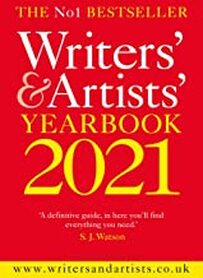 In the UK I would recommend you buy the latest edition of “The Writers’ ℇ Artists’ Yearbook”. In it you will find a section on agents, including contact addresses, website details and email addresses. There is now also a spin-off website which has some other useful resources https://www.writersandartists.co.uk/ For children’s writers, there is a subsidiary book, “The Children’s Writers’ ℇ Artists’ Yearbook”. The one thing you can guarantee is that all the agents and agencies listed in the Yearbook are reputable and have a track record in publishing. The downside is that every author wants the agent to represent them If you are reading this book outside of the UK then there is probably an equivalent book and/or website where you live, but you’ll need to Google it. Some entries give information about the genres the agent represents but others don’t, so you may have to do some further research online to narrow down the field to those agents who are most likely to be interested in your book. Some entries also list authors that the agent already represents, so look for names that write in the same genre as you. If there aren’t any, they may not be the right agent for you. Most agents and agencies have their own websites these days, which makes life a lot easier. Visit the website and see what they have to say about authors and genres. Big agencies will list all their agents and from that you will be able to identify the one who represents authors most like you. Sending your book to the wrong agent is only going to have one outcome and you don’t want it. Time spent on this sort of research is never wasted. It is better to spend an hour finding the right name at an agency than it is to spend 3 hours e-mailing all the names in the hope of hitting the right one. This is particularly important when it comes to non-fiction. Most agents who represent non-fiction authors deal with a very narrow range of work. Sending your biography to an agent who only deals with autobiographies is a complete waste of time. 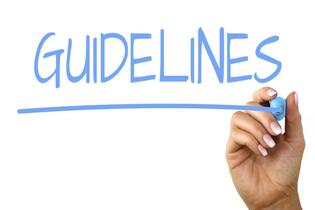 Now we come to the submission guidelines, which I will abbreviate as SGLs. These tell you how to submit your work to the agent or agency. Read them, take note of the content and DO WHAT THEY SAY. The SGLs have been created for a reason and that reason is not so you can ignore them. Firstly, they tell you how many words or chapters to submit. Why is that important? Because if your work doesn’t get the agent excited within that wordcount, they won’t be interested in reading any further. So, if you’re not sure your book can grab the agent’s attention within that wordcount – there’s no point in submitting it. Your beta readers should be able to help you there; ask them how quickly they were hooked on your book? And if you aren’t confident that your book will gain the agent’s attention – you can do something about that before you submit your MS. If you don’t do anything about it, why are you wasting people’s time? One thing you can do while you are actually writing the book is to assume that the last book an agent accepted was exactly like yours. So why would they now want your book if they have just signed one just like it? In that case, how are you going to make your book different from the one he/she just accepted? When you have answered that question, do it! Make no mistake – originality sells.  The other thing about complying with the SGLs are that they show your ability to work with a team. There are authors who have a reputation for being “difficult to work with” (translation: they’re a total pain in the you-know-what). Let me just tell you that you have to be a pretty brilliant author to get away with that. For most authors, the agent – and any publisher they connect you to – wants to know that working with you will be a dream experience – not a nightmare on Elm Street. Adhering to the SGLs is your way of showing what a sweet natured, team player you are. And if you aren’t – fake it. Most SGLs ask for a synopsis of the rest of the book. This is so the agent can see how the story develops and comes to its conclusion. Now, two things about the synopsis:
 Here’s a blog from an experienced publisher about how to write a good synopsis. It is on the synopsis that you should be concentrating your time and effort – not elevator pitches or perfect query letters. There is a reason why the synopsis is usually limited in length and it is so the agent can see if you can express your thoughts concisely. If your synopsis rambles on for three or four pages, then your MS is also likely to ramble on (just like this blog). It is quite probable that the agent will read the synopsis before the MS, so you can see how you will start to influence their thinking if you get it right – or wrong. Agents and publishers want to form long term relationships with authors. Long term relationships spread over several books pay the bills year after year after year. This is where your query letter is important, unless they ask for a biography.  Tell them what plans you have for future books. Harper Lee may have written a 20th century classic, but she didn’t earn her agent or publisher much money after the initial sales surge. Nowadays she would be lucky to get a book deal if she said, “I’ve only got plans for one book”. Publishers particularly like series. If a series catches on, they become real money spinners; just ask J K Rowling and George R R Martin If you are asked for a biography, then keep it short and simple. Bullet points work best: name, age, family circumstances (married, single, children etc), education, current employment, hobbies and interests and, finally, plans for future books. Once you have selected your agents (note the plural) submit to several at the same time – I’d say at least 3 or 4. First of all, if you wait for each one in turn to get back to you before sending out the next query, you are going to be querying forever, Secondly, ideally you want to get into a bidding war, with agents vying over you and competing to give you the best deal so you will sign with them. 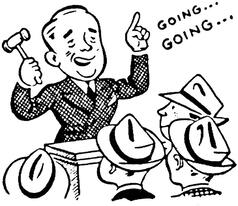 To start that bidding war you can’t get an acceptance and then query a second time, because that shows lack of integrity. You’ll lose that acceptance and you’ll probably put off the rest of the agent community. They do talk to each other and compare notes, you know. The next step for the agent after reading your initial query submission is to ask you for the full MS. It is very important for the MS to be ready to go. The agent isn’t going to wait for you to finish writing the book. They have a stack of other queries four feet high to be getting on with and by the time you have finished writing your MS, they’ve moved on and you’ve missed your big chance.  Now, inevitably, we get to what to do about rejections – because you will get rejections (or, worse, you won’t get a response at all). Legend has it that J K Rowling had 60 rejections before getting Harry Potter accepted. Whether that number is accurate I have no idea, but Rowling herself admits to being rejected by several agents before being signed by Christopher Little then, when she did find him, the book was rejected by 12 publishers before being taken up by Bloomsbury. And, of course, we all know that Decca Records rejected The Beatles, much to EMI’s profit. The main thing to bear in mind is that a rejection doesn’t mean your book is bad. Just remember what I said about tens of thousands of authors and only a handful of agents. Each agent may only take on one or two new clients a year and they will be the ones that don’t just stand out from the crowd, they are the ones that tower over the crowd. Agents rarely say why they are rejecting your book and, for all you know, your book may have been just a hair’s breadth away from being accepted. Send out your query letter again to the next batch of agents on your list. You never know which one is going to be the one who takes your book. But, in the end, you may get to the end of the list of agents without ever catching your unicorn. But that doesn’t mean you’ve reached the end of the road. Next week we’ll be taking a look at medium sized publishers and paid for publishing. We hope you have enjoyed this blog and found it informative. If you want to make sure you don't miss any future editions, please sign up to receive our newsletter. Just hit the button. Week 1 - the start of the journey OK, you’ve spent weeks, months, or even years writing your book and now you’re ready to get it published. That’s great, but however hard you have worked in writing your book, publishing is going to be even harder work. At least, it is if you want to actually sell some copies of your book. That is what this weekly blog is all about. What to do and what not to do to get your book published – and then getting it to sell.. This blog will also cover self-publishing because, despite everything said against it, you can be a successful self-published author. But that’s a discussion for the future. It is a sad fact of life that no matter how good your book, you may not be able to find a big (or even medium) name publisher. There are hundreds of thousands of authors working right now and only a handful will ever end up with a publishing contract. So, if you can't get a publisher, self-publishing is about the only route you have left to you if you want your book to be read. And if you are self-publishing, you are going to have to know how to market your book because, believe it or not, no one is going to stumble across it by accident, which is probably why the Stumbleupon webiste closed down. From Week 4 onwards we are going to be focused mainly on marketing your book, so stick with us, or maybe sign-up for our Newsletter so you don't miss a single issue of this blog. First, Week 1, Lesson 1. NEVER PART WITH MONEY. As with all industries, there are a lot of sharks out there just waiting to pray on the unwary, the innocent and the naïve. Don’t let that be you. If anyone is asking you for money to publish your book, run away. Run away as fast as you can. This includes paying a “deposit to cover our work”. There will be times when you do have to pay for certain services and I’ll cover them at the relevant points, but for the moment be suspicious of anyone who asks you for money, especially if all you know about them is their website URL and e-mail address. If all you know about them is their Twitter username, be even more suspicious. Reputable publishers don’t take money up front. They take a risk that your work is going to earn them an income when it is published. You trust them to do a good job with your book and they take a risk that your book is going to sell. This is why it is so hard to get a publishing deal. Publishers are taking a risk on you, but they don’t want it to be too big a risk, so they look for the sure-fire successes. Nowadays they don’t have teams of people reading submissions for them, they rely on literary agents to offer them the best books. That means you actually have two hurdles to get over – finding an agent that will represent you and then the agent finding a publisher who will put the book out. But if you can get an agent, you are a long way down the road towards success because agents are really only interested in potential best-sellers. There are smaller publishers (like us) who accept submissions direct from authors but, of course, a small publisher has less money to spend on marketing your work, so your sales volumes are likely to reflect that. But we’ll get onto the pros and cons of using small publishers another week. 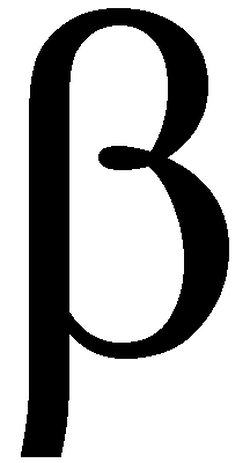 But now to the main topic for this week’s blog. How do you know if your book is good enough to be published? You may think you have written 100,000 words of literary perfection, but readers may think it is 100,000 words of dog excrement. To find out which it is, you need to get an unbiased view of how good your book is before you start sending it off to agents and/or publishers. You're only going to get one shot, so it has to be your best shot. There may be things about your book that you can fix quite easily and there may be things that need major re-writes. As a publisher we see a lot of manuscripts (MSs) and a lot of them leave us scratching our heads and wondering how anyone thought that what they had submitted was fit to be put in front of the reading public. They aren’t necessarily bad in terms of their plot and characters, but to be readable they need a whole lot of work. It is the main reason that so many authors get rejection emails/letters (sometimes they don’t hear anything back at all). So, you really have to be sure that your book is as close to being ready for publication as is humanly possible. A publisher’s editor will help you to polish your book, but they won’t re-write it for you. The editor will provide you with the polish and the duster, but you have to do the work. So you may as well knuckle down and get the work done upfront. Friends and family are unreliable sources of feedback when it comes to assessing how good your work is. They love you (probably) and they don’t want to hurt your feelings (also probably). So, their feedback may be less than totally honest. This is especially true of spouses/partners, who would rather not get into a row with you about whether or not your book is good, why it isn’t and how his/her mother warned him/her not to marry you (those sorts of rows tend to escalate). What you need is beta readers. These are members of the public (alpha readers would be friends and family) who will give you feedback in return for a free copy of your book. How do you find beta readers? On social media.  This is where Twitter and Facebook can be useful. Put out a post asking for beta readers and make up a shortlist from the replies (5 or 6 is usually enough but more is OK). Make sure you specify your genre. There’s no point in getting beta readers who mainly read thrillers if your book is a period romance. When you send the copy of your book, you need to:
When you get the answers, make sure you understand them (check back with the reader if you don’t) and then act on them. This is most important. There is little point in asking for feedback if you are going to ignore it. I have been a beta reader and fed back to an author and they totally ignored what I had to say. I don’t mean they didn’t accept my comments on what was wrong with the book; I mean they didn’t even correct the typos that I pointed out. This means allowing time in your publishing schedule to review and act on the feedback. So, if you are going to self-publish on a specific date, there’s no point in giving a “respond by” date for the day of publication. Plan for there being major changes needed and you won’t leave yourself short of time before publication. Certainly, don’t start “querying”* the book until you have made the necessary changes. After all, the whole object of the exercise is to improve your book, so it is more likely to be accepted when you do start querying. Finally, don’t get defensive. The beta reader is trying to help you. You may not like what they have fed back to you, but you asked for their opinion and they have given it. It’s not their fault if you wrote a book that they didn’t like. Take the feedback seriously. If you don’t like what was said – don’t get into an argument. Just thank the beta reader for their input (do that anyway, it’s good manners). If you don’t agree with the feedback that a beta reader has given you, then you don’t have to do anything. But if more than one beta reader has said the same, or at least similar, things then it is well worth taking some time to reflect on what has been said. If one person says something it might be discounted as “opinion” but if two people are saying the same, it may mean that changes need to be made. If three people are saying it – you have a problem and it needs fixing. Finally, if you have made changes, you should go back to the beta a reader that suggested them to see if they think you have made an improvement. There’s no need to send the whole book, just the relevant passages. There are people who provide a "paid for" beta reading service. One of our authors used one for one of his books and the feedback he got was very valuable. But check what they are offering (are they actually beta readers or are they “proof readers”**) and check to see what sort of reputation they have. Reputable providers will be only too glad to tell you which authors they’ve helped and you can check with the authors themselves by using their social media to contact them. You probably got into writing because you are also a reader – so why not be a beta reader yourself? Your opinion is as valid as anyone’s and it’s a great way to get free books and to discover new authors. It’s also good for your karma (if you believe in karma) to help others. You could start by being a beta reader for one of our authors. Their contact details can be found alongside their author profiles by clicking here. That’s it for this week. Next week we’ll be looking at how to find an agent or publisher. * Querying – the technical term used for approaching an agent or publisher. ** A proof reader is someone who checks the spelling and grammar in your work and looks for typos. They don’t provide any feedback on the quality of the writing. Now for the hard sell (well, maybe not so hard). You can find out all about the books we publish by clicking the button below. To make sure you don't miss any of the blogs in this series, sign up for our newsletter here.
|
AuthorThis blog is compiled and curated by the Selfishgenie publishing team. Archives
June 2025
|
||||||||||||||||||||
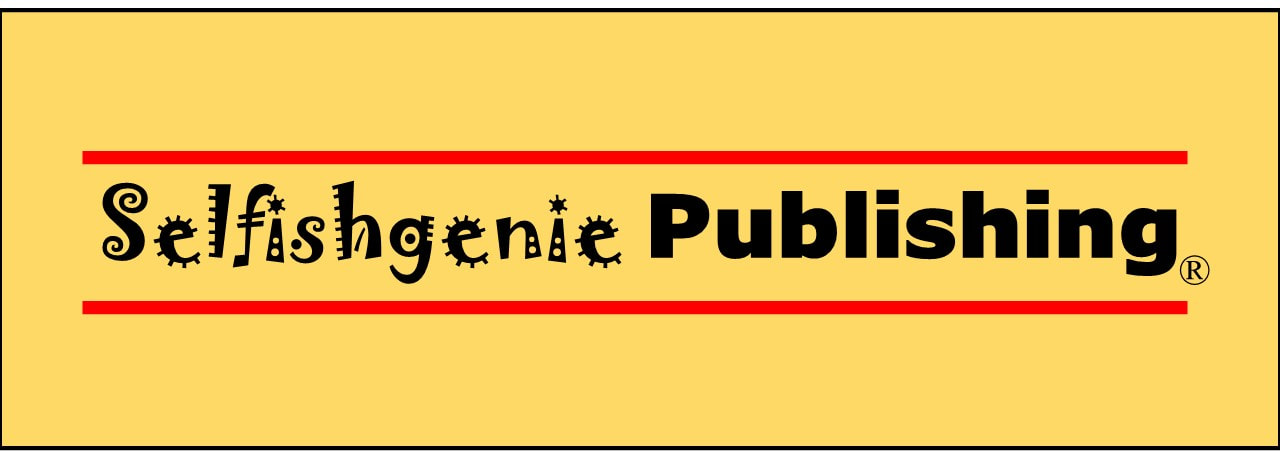

 RSS Feed
RSS Feed